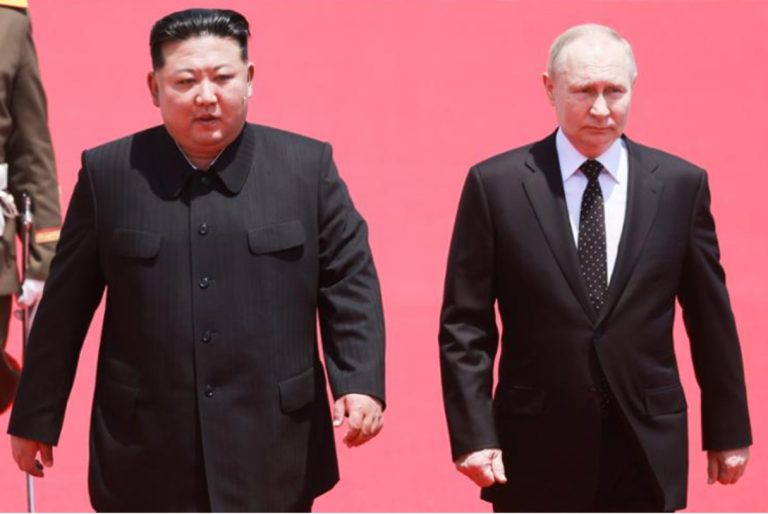
Recent deployment of 3,000 more North Korean soldiers to Russian territory brings total number of troops sent approximately 11,000
New York, N.Y. — North Korea and Russia are reinforcing their strategic alliance even as Moscow engages in ongoing peace talks to end the Ukraine conflict. Pyongyang’s commitment to supporting Russia militarily has been underscored by the recent deployment of 3,000 additional North Korean soldiers to Russian territory.
This brings the total number of troops sent since the war’s start to approximately 11,000. South Korean military reports indicate that around 4,000 North Korean soldiers have been killed or wounded in combat.
This deepening partnership reflects a broader geopolitical alignment between the two nations.
Analysts suggest that mutual strategic interests are driving this cooperation beyond the immediate context of the Ukraine war. For Russia, North Korea has become a reliable supplier of munitions and troops, while Pyongyang benefits from access to advanced military technology and diplomatic leverage against the United States.
The alliance was formalized through a comprehensive defense treaty signed in July 2024, which obligates both nations to provide mutual assistance in case of aggression. This agreement also includes provisions for joint military activities and technology exchanges that could significantly bolster North Korea’s defense capabilities.
“North Korea has proven to be Russia’s most dependable ally throughout the conflict,” said Cho Han-bum of the Korea Institute for National Unification. “Even if peace negotiations succeed, ongoing tensions between Russia and NATO will ensure that Moscow continues to rely on Pyongyang.”
Recent developments further highlight this growing bond.
Russian Security Council Secretary Sergei Shoigu visited Pyongyang earlier this year to reaffirm commitments under the treaty. Meanwhile, President Vladimir Putin has suggested that North Korea could play a role in resolving the Ukraine conflict alongside BRICS nations like China and India.
For North Korea, this partnership offers significant diplomatic advantages as it seeks leverage against Washington in potential negotiations. A report by the Asian Institute for Policy Studies emphasized that both nations share a vision for a multipolar world order and greater influence in Asia-Pacific affairs.
Kim Jong-un is reportedly considering a visit to Moscow later this year, potentially coinciding with Russia’s Victory Day celebrations on May 9. However, logistical challenges and security risks may complicate such plans. Experts note that North Korea lacks aircraft capable of making the journey directly to Moscow, raising questions about how such a trip would be arranged.
While this alliance strengthens both nations’ positions on the global stage, it also raises concerns about regional stability.
The treaty’s provisions for mutual defense and technology sharing could escalate tensions on the Korean Peninsula and beyond. Additionally, arms trade between North Korea and Russia undermines international sanctions regimes and complicates nonproliferation efforts.
The implications of this partnership extend far beyond bilateral ties. By aligning themselves against Western-led coalitions, North Korea and Russia aim to reshape regional security dynamics while challenging U.S.-led frameworks in Northeast Asia.
As peace talks progress in Ukraine, the enduring nature of this alliance signals a broader shift in global power dynamics – that could have lasting consequences for international diplomacy and security arrangements worldwide.
Kim Jong-un and Vlad Putin Forge Postwar Military Cooperation (March 30, 2025)